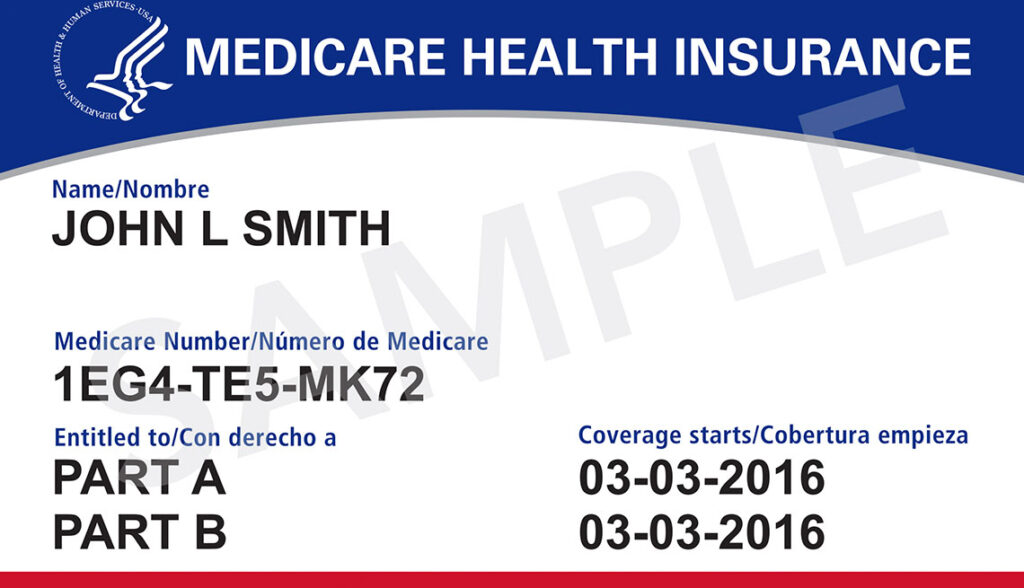In the digital age, we have access to a lot of information. Sometimes so much that it can be overwhelming. Many of our clients come to us after they have spoken to various agents representing the insurance company which can sometimes be filled with biased information.
On the other hand, our licensed agents are all brokers and we train each one of them to be able to discuss multiple plans from several insurance companies in your area.
Get a FREE Medicare insurance consultation and quote with no obligation to enroll!
According to the Commonwealth Fund, the average Medicare insurance beneficiary will have about 39 Medicare Advantage plans to choose from in 2022. We expect this to increase in the future. Our Smile Insurance Group clients continuously come to us to help them go through all of their options to make the right choice for them.
We pride ourselves as Medicare insurance brokers to provide many options to our clients. Our agents will help you look at Medicare Supplements also known as Medigap and Medicare Advantage plans. We strongly believe in working with our clients to find the right option for themselves and their family.
Call us or find a local agent today! We do not offer every plan available.

Original Medicare insurance is provided by the United States federal government and administered by the Centers for Medicare and Medicaid Services. Medicare is provided to US citizens or legal permanent residents who have been in the US for a consecutive 5 years who are over the age of 65 and some people under 65 with certain disabilities or conditions.
Medicare insurance is broken down into “Parts.” Part A – Hospital insurance, Part B – Medical insurance, Part C – Medicare Advantage plans, and Part D – Prescription Drug coverage. Original Medicare consists of Part A and Part B only.
Under Original Medicare, you will have certain deductibles, copays, and coinsurances with no maximum out of pocket. Follow this link to get more coverage details.
Medicare insurance beneficiaries have many options to choose from to help pay for some or most of the deductibles, copays, and coinsurances from Original Medicare.
Option 1 (Medicare Supplement / Medigap)
Medigap policies also known as Medicare Supplement Plans help fill in the gaps from Original Medicare and is sold by private insurance companies. A Medigap plan will cover some of the deductibles, copays, and coinsurances, and may also offer additional coverage like medical benefits while outside of the U.S..
How it works:
- Original Medicare will pay your Medicare approved services at the Medicare-approved amounts.
- Then, the Medigap plan will pay its share.
Benefits of this option:
- Flexibility – You will be able to go to any provider that accepts Medicare
- Ease of use – No referrals
- Portable – Will follow you if you move
What is not generally covered:
- Vision (Medicare insurance does cover medically necessary vision)
- Dental
- Hearing Aids
- Eyewear
Things to know about Medigap policies:
- You must have Medicare Part A and Part B
- A Medigap (Medicare Supplement) plan is different than a Medicare Advantage Plan. Medigap policies only supplements Original Medicare insurance benefits, while Medicare Advantage plans are a way to get Medicare benefits through a private insurance company.
- You pay a private insurance company a monthly premium for your Medigap policy. This premium is in addition to your Part B premium.
- A Medigap plan covers only 1 person. For those who have spouses, Medigap policies will only cover the named Medicare insurance beneficiary. Your spouse will have to purchase their own Medigap policy or choose another option.
- The insurance company must be licensed to sell Medigap plans in your state.
- All standardized Medigap policies are guaranteed renewable, which means as long as you continue to pay your monthly premium you cannot be cancelled even if you develop health problems.
- The current standardized Medigap policies will not include prescription drug coverage (Part D). Our agents can help you with purchasing a separate Medicare Part D policy. If you choose to not enroll in a prescription drug plan and do not have credible coverage, you may have a late enrollment penalty if you do not have coverage for 63 days or more.
- It is illegal for any agent to sell you a Medigap policy if you are on a Medicare Advantage Plan, unless you are switching back to Original Medicare insurance.
Option 1 with or without Part D
Medicare insurance Part D covers medications. Generally, medications picked up at a pharmacy will fall under Medicare insurance Part D. Alternatively, medications administered in the doctor’s office or pharmacy may fall under Medicare insurance Part B. You can check with your plan’s customer service to find out if your medication is a Part B or Part D medication. You can also call our team and we would be happy to help!
You will want to consider several things when choosing a Medigap policy:
- Do I need coverage for medications?
- You may owe a monthly late enrollment penalty if you do not have coverage for medications through a Medicare drug insurance policy or other credible prescription drug coverage that is expected to pay, on average, at least as much as Medicare’s standard prescription drug coverage. This penalty is a monthly penalty that will be applied for as long as you are enrolled in a Medicare prescription drug plan.
- The list of medications, also known as formulary, can be different amongst the available plans in your area. Check with one of our agents to help you figure out which plan covers your medications.
- Find out if your pharmacy is in the plan’s network. We can help with this!
Option 2 (Part C / MAPD)
Medicare Advantage plans also known as Part C are policies offered by private insurance companies. Each Medicare insurance carrier offering a Part C plan must follow all applicable rules and regulations set by Medicare. They must also give you the same rights as you would have under Original Medicare.
Part C plan benefits will vary amongst carriers and plans. Most Part C plans include prescription drug coverage and benefits not provided under Original Medicare insurance like dental, vision, and hearing aids.
Additionally, you may be required to use provider within the plan’s network. The network requirements are in part based on the type of Part C plan. The types of Part C plans include Health Maintenance Organization (HMO), Preferred Provider Organization (PPO), Private Fee-for-Service (PFFS), and Special Needs Plans (SNP).
Some areas may only have certain plan types available. Call us to find out which plans are available in your area.

We do not offer ever plan available in your area. Any information we provide is limited to those plans we do offer in your area. Please contact Medicare.gov or 1-800-MEDICARE to get more information on all of your options .








